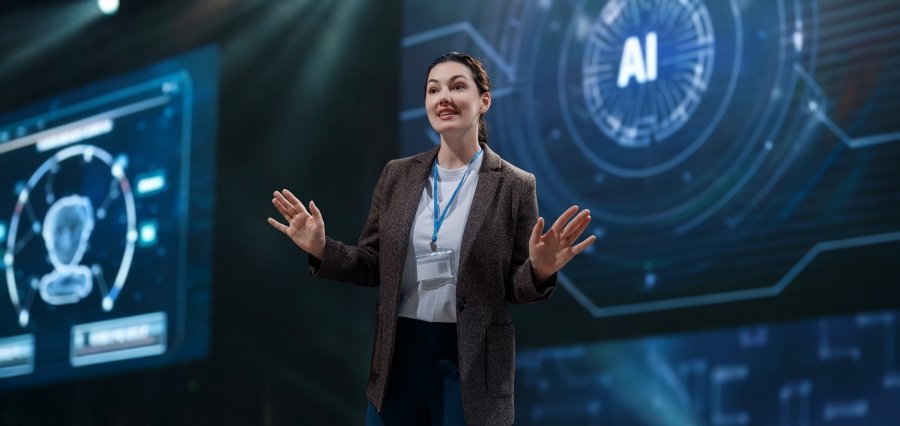Prime Highlights
- Women’s involvement in AI is a strategic advantage for the UAE, with leadership placing women at the heart of national progress across advanced sciences.
- Inclusion in technology is seen as a national asset, strengthening innovation, raising standards, and shaping future AI leadership.
Key Facts
- At Technology Innovation Institute, 355 women scientists and engineers, including 157 Emirati women, contribute to cutting-edge AI, robotics, quantum, and cryptography research.
- Globally, women represent less than one-third of the AI workforce and only 18% of researchers, highlighting the ongoing gender gap.
Background
According to Dr. Najwa Aaraj, Chief Researcher at the Technology Innovation Institute (TII), women’s involvement in artificial intelligence (AI) provides a strategic advantage for the UAE. During her address on the need to address the issue of women in science and technology leadership, Dr. Najwa Aaraj emphasized that change is not only quantified by ambition but also by who has the privilege of defining it.
She said the UAE rejects the idea that women in technology are an exception. “Our leadership has always placed women at the centre of national progress, whether in space, energy, or advanced sciences,” she noted.
At TII, more than 355 women scientists and engineers, including 157 Emirati women, are engaged in cutting-edge research. They contribute to AI, robotics, cryptography, quantum computing, and space science. Several lead AI projects, such as Falcon large language models and ethical AI systems.
The gender gap continues to show brightly around the world. Data reveals that women represent under a third of those working in AI and account for only 18% of researchers. Dr. Najwa Aaraj warned that this lack of representation is not only unfair but also a risk in such a critical field.
Inclusion, however, is seen as a national asset in the UAE. The NexTech Program through the Advanced Technology Research Council has placed 100 Emirati students, including many women, at some of the best universities worldwide to prepare them to become future leaders in AI and emerging technologies.
Dr. Najwa Aaraj encouraged Emirati women to enter the fields of science and technology with self-assurance. “I didn’t wait for permission. As women, we belong here,” she said, noting that inclusion should be systematically supported through mentorship, education, and opportunity.
She concluded that when women rise in AI, they raise standards, strengthen innovation, and lift the nation with them.




